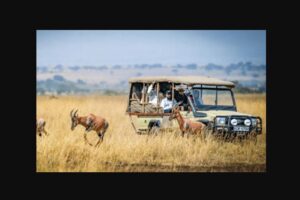Ugandan police says they have captured two traffickers after a joint operation with a non-governmental organization and rescued 38 victims of human trafficking in Kenya
In a tweet, Charles Twiine, a spokesperson for the Criminal Investigations Directorate, stated that they had recovered 31 girls and seven men, all Ugandans who had been trafficked to Kenya, in collaboration with the NGO “Make a Child Smile.”

Twiine said the victims are currently housed at a hotel at the border town of Busia, pending reintegration to their respective homes. Two Kenyans living in Uganda have been arrested over the alleged trafficking of the rescued Ugandans.
Human trafficking is common in Uganda and Kenya according to the immigration department reports. The neighbouring countries are increasingly being used as a transit route by traffickers who promise to take people to work in the Middle East. In late August, Uganda rescued eight Burundian female nationals from suspected human traffickers.

Human Traffickers in Kenya
As reported over the past five years, human traffickers exploit domestic and foreign victims in Kenya, and traffickers exploit victims from Kenya abroad. Within the country, traffickers exploit children through forced labor in domestic service, agriculture, fishing, cattle herding, street vending, and begging. Additionally, traffickers exploit teenage boys from nomadic tribes into cattle rustling.
Traffickers also exploit girls and boys in commercial sex throughout Kenya, including in sex tourism on the coast in Nairobi and Kisumu, particularly in informal settlements; at times, family members facilitate their exploitation.
Children are also exploited in sex trafficking by people working in khat cultivation areas and near gold mines in western Kenya, truck drivers along major highways, and fishermen on Lake Victoria.
NGOs reported that internally displaced persons, particularly those who live close to a major highway or local trading center, are more vulnerable to trafficking than persons in settled communities.
Kenyans are recruited by legal or illegal employment agencies or voluntarily migrate to Europe, Northern Africa, North America, Central and Southeast Asia, and the Middle East—particularly Saudi Arabia, Lebanon, Kuwait, Qatar, UAE, Bahrain, Iran, Iraq, and Oman—in search of employment, where, at times, they are exploited in massage parlors and brothels, or in forced manual labor or domestic service.
In 2019, due to increased oversight of recruitment agencies and enforcement of labor regulations, traffickers increasingly utilized online recruitment and relative referrals. Traffickers shifted targeting from coastal regions to vulnerable youth in rural areas and remote villages in Kenya.

Increased awareness campaigns, trainings, and law enforcement efforts in the coastal region and in hotels and resorts have shifted the location of sex trafficking of minors to private hotels and short-term rentals.
The Counter-Trafficking in Persons Act of 2010 criminalized sex trafficking and labor trafficking and prescribed penalties of 30 years’ to life imprisonment, a fine of not less than 30 million Kenyan shillings ($296,300), or both. These penalties were sufficiently stringent. However, by allowing for a fine in lieu of imprisonment for sex trafficking, these penalties were not commensurate with those for other serious crimes, such as rape.
Sections 14 and 15 of the Sexual Offenses Act of 2006 criminalized the facilitation of child sex tourism and “child prostitution” and prescribed punishment of no less than 10 years’ imprisonment, two million shillings ($19,750). The government’s overall data collection and reporting on anti-trafficking law enforcement efforts remained weak. Observers reported a lack of data sharing and input from relevant agencies likely led to underreporting of trafficking cases in 2019.
Kenyan authorities continued to treat some victims as criminals and the availability of protective services for adult and foreign national victims remained inadequate, which contributed to the quick repatriation of foreign victims due to lack of available shelters.
The government also sometimes tried trafficking cases as immigration or labor law violations rather than crimes under the anti-trafficking law, which resulted in traffickers receiving less stringent sentences. The Counter-Trafficking in Persons Act continued to allow fines in lieu of imprisonment for sex trafficking offenses which remained incommensurate with other serious crimes.

















